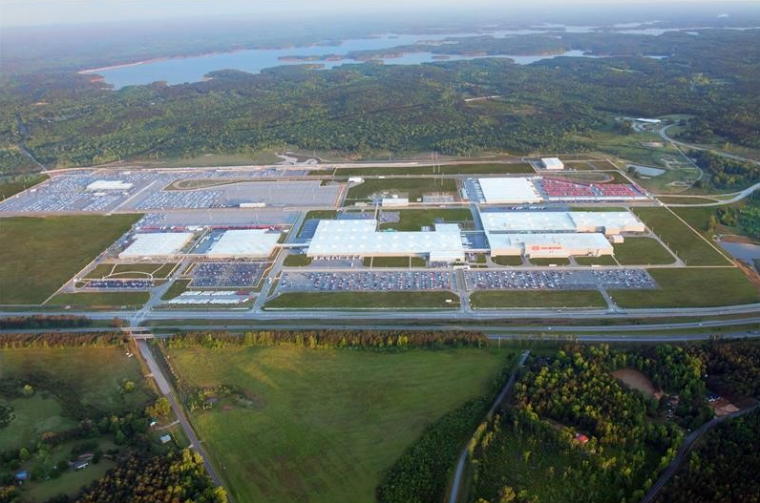Kia Goes Green, Plants Almost Five Million Trees Around Production Facilities

Kia has expanded the amount of green space surrounding its production plants, such as the Kia plant in Georgia
Kia is known for introducing a variety of eco-friendly transportation options to its lineup, such as the Optima PHEV and the Soul EV. Because of its commitment to fuel-efficient transportation, it’s no secret that going green is important to the South Korean carmaker. Now, this dedication to helping the environment is even more obvious.
The brand’s annual ‘MOVE’ sustainability report just revealed that Kia has increased the amount of green space around its production facilities, part of Kia’s new initiative to reduce its impact on the environment.
Why Buy Kia? Learn why Kia is such a great brand to purchase your next car from
In 2015 alone, Kia added 3.9% of green space—the equivalent of 33 soccer pitches—to the areas surrounding its manufacturing plants around the world. This increase in green space brings the amount of great space created by the carmaker around its facilities to 3,507,276 m2, which is the equivalent of 858 soccer pitches. These green areas have been created at each of Kia’s global production facilities, including the Sohair, Hwasung, and Gwangju facitilities in Korea; Žilina in Slovakia; Georgia in the United States; and in Yancheng Province, China.
Better Technology: See how Kia’s new plan makes great technology standard
By creating these green spaces—and planting a total of 4.94 million trees at its manufacturing facilities—Kia plans to help make its production facilities eco-friendlier. In addition to growing the green areas surrounding its plants, the Korean carmaker has invested 38.5 billion Korean won, which is the equivalent of $32.5 million US dollars, in green initiatives. This investment has increased over 50% since 2014.
The company has also managed to avoid any soil contamination at its production plants since 2000 and was recently ranked 35th in the Interbrand Best Global Green Brands report.

The News Wheel is a digital auto magazine providing readers with a fresh perspective on the latest car news. We’re located in the heart of America (Dayton, Ohio) and our goal is to deliver an entertaining and informative perspective on what’s trending in the automotive world. See more articles from The News Wheel.

